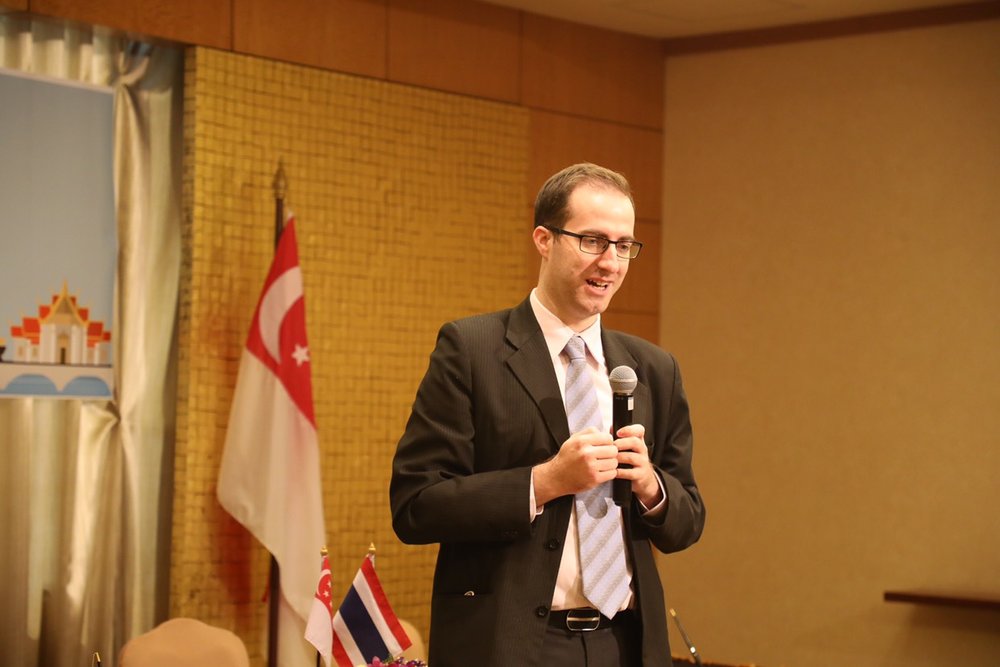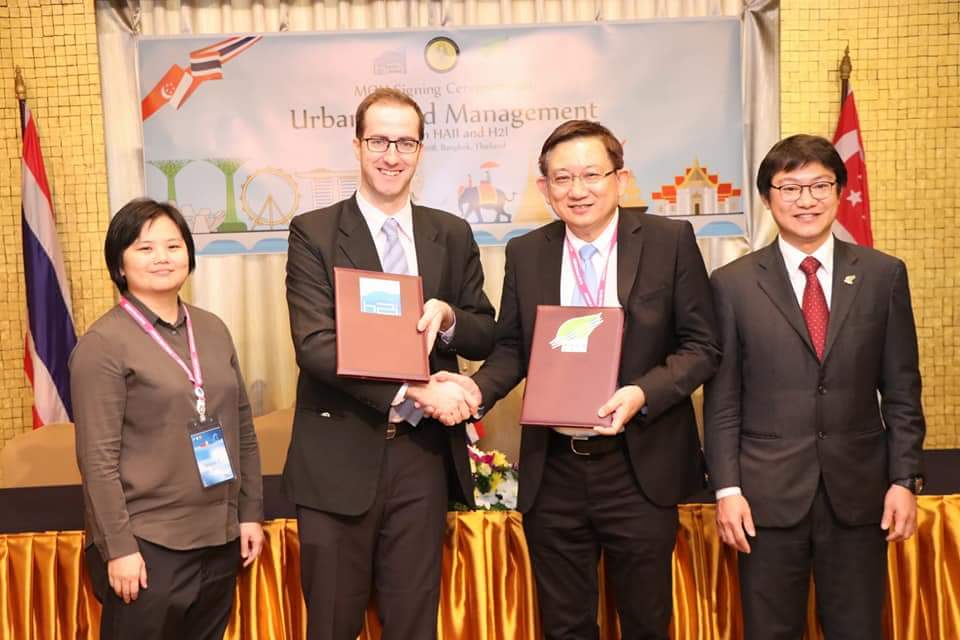Hydroinformatics Institute (H2i) and Thailand’s Hydro and Agro Informatics Institute (HAII) have signed a Memorandum of Understanding (MOU) to share ideas on how to better manage urban water issues, including the flash floods that affect both countries.
As cities in the region cope with increased rainfall, a rise in sea level, and the effects of urbanization on flooding, urban water management has become critical, with declining water quality and supply as well as increased flood risk among top concerns.
“Asia is home to 17 of the 25 most densely populated cities in the world, and sharing experiences and expertise can make for better planning and coping strategies for this critical resource,” says H2i’s Managing Director, Jair Smits.
Earlier this year, heavy rain left parts of both Bangkok and Singapore under water, causing damage and disruption.
It makes the newly signed MOU between the two water institutes especially timely, Mr Smits says.
The MOU was signed on the sidelines of ASEAN NEXT 2018: Rising Science, Technology & Innovation Networking for Innovative ASEAN, held from March 19 to 23 in Bangkok. It takes effect from March, and covers an initial period of three years, with the option to be extended.
The Thai capital often experiences flash floods due to torrential rain, water run-off from the North, and high tides. Rapid urbanisation and the resulting loss of natural drainage as well as pollution exacerbate the problem, making water management in Thailand – and particularly in Bangkok – especially important.
As a first step, H2i participated in a workshop on operational water management systems, “Workshop on SMART Informatics for Sustainability”, hosted by HAII on the sidelines of the ASEAN NEXT 2018 event.
There are plans for more workshops and demonstrations by both agencies of their respective operational water management systems and urban drainage modelling. Through such simulation models, issues like flash floods can be better anticipated or prevented, and contingencies put in place for impacts to be contained.
Accurate rainfall forecasts could identify the areas at highest risk and also prompt pre-emptive actions that could contain and curtail damage.
HAII, one of Thailand’s leading water agencies, applies science and technology in the areas of water resource management and water monitoring at the national, regional, provincial and community levels. It works with public and private sector bodies to acquire relevant data, and also has access to monitoring stations across Thailand.
By applying informatics analysis to these datasets, H2i is able to generate insights that may lead to a more optimal water management system, says Mr Smits.
“We can complement their efforts,” he adds.

Mr. Smits, Managing Director of H2i
Singapore, despite not being endowed with water resources, has created a robust and diversified “four national taps” strategy, and aims to achieve water self-sufficiency by 2061. Singapore’s Minister for the Environment and Water Resources, Masagos Zulkifli, has described Singapore as a “bellwether to the rest of the world with regards to water”.
“Dealing with water issues, therefore, is hardwired into our DNA,” he said at the opening of the Singapore International Water Week in July last year.
Echoing this sentiment, Mr Smits says there is much potential for sharing knowledge and insights.
“We are keen to apply the knowledge we have in Singapore to the challenges faced by the rest of the region. Singapore’s water management system is continuously being bolstered so it remains resilient in the future. This is a massive effort that can benefit greatly from collaboration and exchange of experiences from around the world,” he says.
